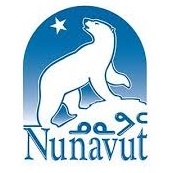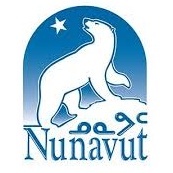
Training on the Job — Nunavut
At a glance
- Up to 50% of project cost
- Closing date : February 21, 2026
- All industries
- Nunavut
- Non-profit
- Public or Parapublic institution
- For-profit business
- Sole proprietorship
- All revenue ranges
- 50 employees maximum
- Indigenous Peoples
- Persons with Disabilities
- Rural or Northern Residents
- Youth (<40)
- Economic, Social and Community Development
- Employment and Training
- Children & youth
- Young adults
- Indigenous peoples
- People with disabilities
- Rural / Remote communities
- Low-income individuals / families
- All structures
- Municipal
- Regional
- Provincial
Overview
Get financial support to hire and train workers who need experience and training leading to apprenticeship registration.
Activities funded
The Training on the Job program in Nunavut provides a wage subsidy to encourage the hiring and training of unemployed or under-skilled workers. Eligible activities involve various forms of training, which should eventually lead to stable employment for trainees.
- On-the-job training provided directly at the employer's site.
- Training delivered through an educational institution or vocational training provider.
- Combinations of on-site training and institutional learning.
- Skill upgrading for unemployed or underemployed individuals to prepare them for specific roles.
Eligibility
The eligibility criteria for companies seeking the Training Assistance Program (TAP) grant are detailed and specific, aiming to support a variety of organizations.
- Eligible companies include public sector organizations, private sector entities, non-governmental organizations, and charitable or voluntary organizations.
- Private sector employers must have fewer than 50 employees to qualify.
- Employers must have a position that is either full-time, part-time (minimum of 20 hours per week), or seasonal for the trainee.
Who is eligible?
Eligible entities for the TAP program include:- Non-profit organizations operating within Nunavut looking to provide training opportunities aligned with their mission.- Municipal governments aiming to enhance local employment initiatives by offering training for community members.- Private sector employers with fewer than 50 employees interested in developing their workforce by hiring and training unemployed or under-skilled residents of Nunavut.- Inuit organizations and industry associations dedicated to economic development and employment in Nunavut, focusing on skill building for the unemployed or under-skilled workforce.Eligible trainees must be:- Residents of Nunavut, aged 15 years or older.- Unemployed or requiring skill upgrading to increase their employability in the local job market.- Willing to engage in training programs for full-time, part-time (at least 20 hours per week), or seasonal employment."""
Eligible expenses
The program covers specific wage subsidies related to the training of employees under the TAP.
- 50% of the trainee's wage (65% for persons with disabilities) up to a maximum of 40 hours per week.
- Wage subsidies for apprentices as per the negotiation levels up to a specified amount.
- Reimbursement for regular hours worked, excluding holidays, sick time, and overtime.
Eligible geographic areas
This grant focuses on the region of Nunavut, ensuring that training support aligns with local economic and employment objectives. Eligible employers and trainees are expected to be based in and around this specific geographical area.
- Nunavut, Canada
Selection criteria
The Training Assistance Program (TAP) offered by the Government of Nunavut has specific evaluation and selection criteria to determine eligibility:
- Applicants must be residents of Nunavut.
- Priority is given to individuals who demonstrate a commitment to professional development.
- Available funding is limited, and decisions are based on the relevance of the training program to the individual's career goals.
How to apply
Gather Necessary Information
- Ensure all eligibility criteria are met by both the employer and the trainee.
- Gather detailed information about the training plan, including expected outcomes and durations.
Complete EAS Application Form
Complete TAP Application Form
- Fill out the Training Assistance Program (TAP) application form thoroughly.
- Include details about the trainee, job, and training plan.
Submit Applications
- Submit both completed application forms to a Career Development Officer (CDO).
- Consider contacting a CDO for further clarification or assistance if needed.
Wait for Review and Contract
- Wait for the CDO to review the applications and the training plan.
- Receive a copy of the Training on the Job contract if the application is approved.
Finalize Contract
- Ensure the contract is signed by both the employer and the trainee.
- Return the signed contract to the CDO.
Receive Official Approval
Submit Invoices
- Regularly submit invoices to the CDO indicating the number of hours worked by the trainee and wages paid.
- Ensure invoices are submitted by May 1 to align with the fiscal year.
Additional information
Here are additional relevant details for this grant:
- The program requires a signed contract between the employer and trainee, emphasizing the commitment to training and potential employment.
- Employers are encouraged to submit invoices regularly for reimbursement, rather than waiting until the end of the training period, to ensure timely subsidy distribution.
- Invoices must include detailed information such as hours worked and salary paid to facilitate the reimbursement process.
- The program operates on a fiscal year cycle, and all invoices must be received by May 1 to be processed.
Contacts
Frequently Asked Questions about the Training on the Job — Nunavut Program
What is the Training on the Job — Nunavut?
How much funding can be received?
Who is eligible for the Training on the Job — Nunavut program?
What expenses are eligible under Training on the Job — Nunavut?
Who can I contact for more information about the Training on the Job — Nunavut?
Where is the Training on the Job — Nunavut available?
Is the Training on the Job — Nunavut a grant, loan, or tax credit?
More programs like this

Kitikmeot Community Futures
Kitikmeot Community Futures Incorporated (KCFI)
Small Business Support Program — Small Business Opportunities Fund
Government of Nunavut
CanNor Jobs and Growth Fund — Not-for-Profit
Canadian Northern Economic Development Agency (CanNor)
Strategic Investments Program — Nunavut Economic Foundations Fund
Government of Nunavut
CNBSC – Baffin, Nunavut
Kitikmeot Community Futures Incorporated (KCFI)
Summer Employment for Nunavut Students
Government of Nunavut
Grant for Nunavut Employers
Government of Nunavut
Targeted Labour Market Programs
Government of Nunavut
Nunavut Prospector's Program
Government of Nunavut